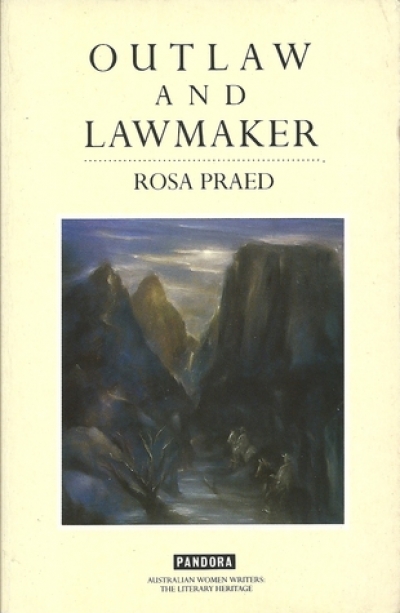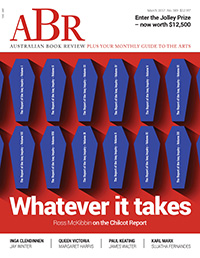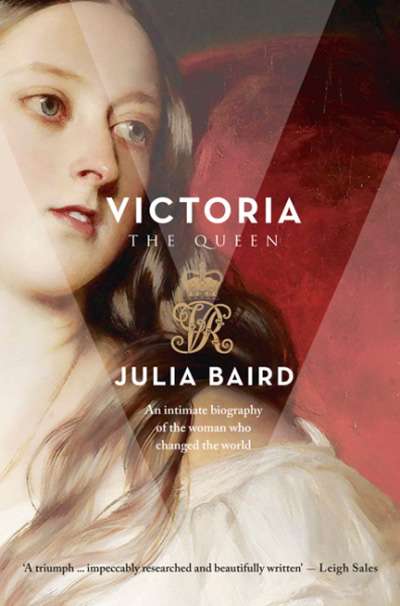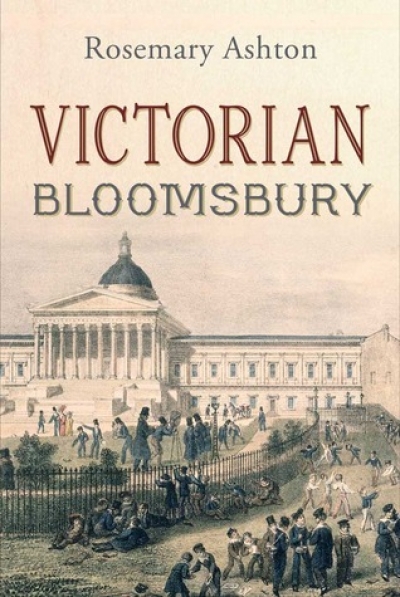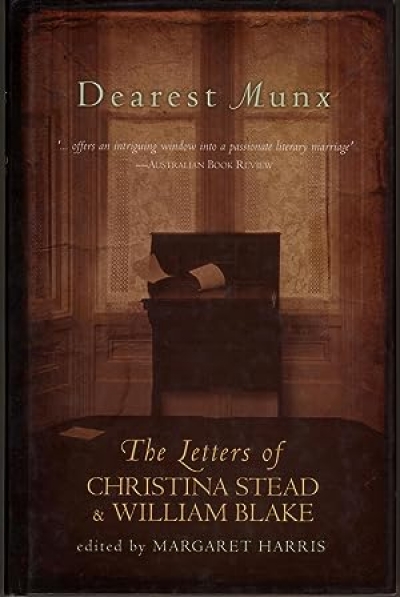Margaret Harris
Outlaw and Lawmaker by Rosa Praed & Mothers of the Novel by Dale Spender
Chilcot and Australia
Dear Editor,
We cannot be reminded often enough of the perfidy that led in succession to the Iraq disaster, the continuing débâcle in the Middle Eas ...
Victoria: The Woman who Made the Modern World by Julia Baird
Christina Stead is an author perennially ripe for rediscovery. Her acknowledged masterpiece, The Man Who Loved Children, came out originally in 1940; in 2005, it figured in Time’s list of the 100 best novels published since 1923. But in his introduction to the Miegunyah Modern Library edition of the novel, American novelist Jonathan Franzen cites ...
It’s not often that literature makes the front page of the Sydney Morning Herald, but on 3 November 2006 the lead story was a report by David Marr about the National Library of Australia’s purchase of a collection of Patrick White’s papers, previously thought destroyed. Other media, both in Australia and internationally, picked up the story. The T ...
Dearest Munx: The Letters of Christina Stead and William J. Blake by Margaret Harris
John Hanrahan reviews 'A.D. Hope' by Kevin Hart, 'James McAuley' by Lyn McCredden, 'Peter Porter' by Peter Steele, 'Reconnoitres' edited by Margaret Harris & Elizabeth Webby, 'Annals of Australian Literature' edited by Joy Hooton & Harry Heseltine
Oxford University Press has begun a welcome series called Australian Writers. Two further titles, Imre Salusinszky on Gerald Murnane and Ivor Indyk on David Malouf, will appear in March 1993, and eleven more books are in preparation. Though I find the first three uneven in quality, they make a very promising start to a series. In some ways they resemble Oliver and Boyd’s excellent series, Writers and Critics, even being of about the same length. However this new series is less elementary, more demanding of the reader. It is, predictably, far sparser in critical evaluation, concentrating on hermeneutics, and biographical information is as rare as a wombat waltz.
... (read more)
